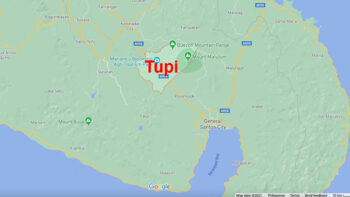PHNOM PENH, Cambodia (MindaNews/4 Apr) – Member states of the Association of Southeast Asian Nations (ASEAN) have agreed to initiate reforms in their economic laws and policies to harmonize the implementation of regional agreements towards the targeted establishment of a single economic community within the next three years.
Dr. Surin Pitsuwan, ASEAN Secretary General, said ministers and state leaders attending a two-day regional summit here acknowledged the need to amend some of their national laws, rules and regulations to ensure the full implementation of the ongoing regional integration efforts.
“Now they are going to concentrate on the implementation at the national levels, so that national laws, national rules, national regulations will be amended, reformed in place in order to implement the major agreements,” he said in a press conference at the sidelines of the 20th ASEAN Leaders’ Summit that ended Wednesday.
Surin said the member states have so far ratified 70 percent of the regional economic deals but there were agreements that remained pending due to conflicts with national or domestic laws and policies.
Trade Undersecretary Adrian Cristobal, who represented the Philippines in the economic meetings here, earlier admitted that the country is facing some legal constraints with regards to the implementation of the agreements in investments and the services sector.
He said government is on track with its commitment towards the regional integration initiatives but is presently slowing down because of some restraints in the Constitution, specifically with the liberalization of the services sector, the foreign equity contribution and investments.
The Constitution limits foreign equity investments in specific economic activities to a maximum of 40 percent.
Surin said they have been working with the member states for the fine tuning of their laws related to the agreements on investments, in goods and the services sector.
“All these things are important to move ASEAN forward to make it into one market,” he said.
Aside from the policy reforms, Surin said ASEAN leaders were also pushing for more cross-border exchanges between small and medium enterprises (SMEs) in the region.
“They want to increase the intra-regional trading from 25 to 40 percent (of the region’s gross domestic product). That is very, very critical if we want to make it into a strong integrated market,” he said.
He said ASEAN members were also addressing the “issue of inequality” in the region by adopting a strategy of equitability that aims “to make sure that growth in ASEAN is balanced, inclusive and equitable – in a sense that all member states can equally benefit from every growth, development and prosperity as a consequence of development or engagements with the external parties.”
Despite the challenges currently facing the regional grouping, Surin said ASEAN remains on track in its integration efforts.
“I think the road to the (establishment of the single economic) community in 2015 is on track. The leaders, the ministers have called for the doubling of efforts and cooperation by all mechanisms, all sectoral bodies of ASEAN in order to (ensure that it) move forward,” he added. (Allen V. Estabillo / MindaNews)
